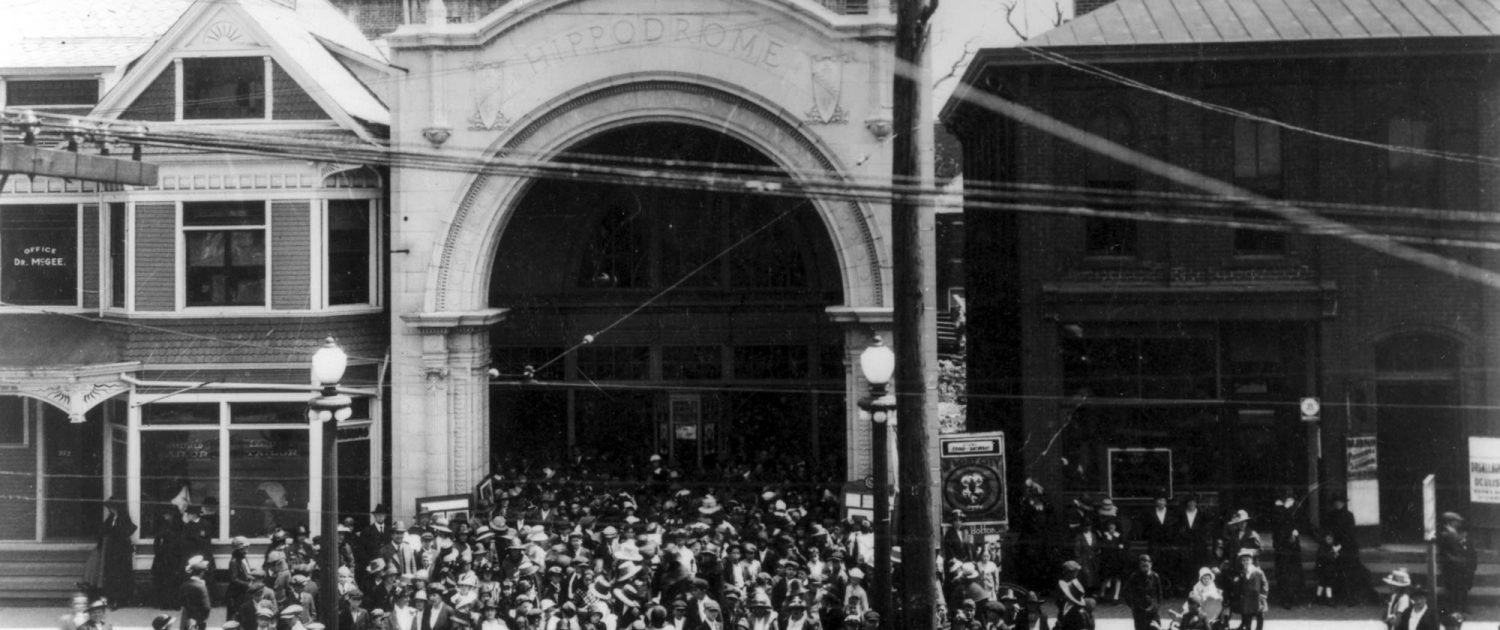Welcome to the Peoples Bank Theatre in historic downtown Marietta, Ohio. Previously called the Hippodrome, its original location was at the corner of Second and Union Streets, on a lot that is now occupied by the historic Dime Bank building.
This original vaudeville house was built on May 18, 1911, and had a seating capacity of 657. The theatre was a destination for traveling live acts, plays, magic lantern projections, and later silent moving pictures, which were accompanied by live music.
After the theatre was claimed by fire in November of 1917, the C & M Amusement Company immediately purchased lots on both Putnam and Third Streets, vowing to rebuild “at once on a more elaborate scale.”
On May 9th, 1919, the new Hippodrome Theatre opened to the public with a premiere showing of Daddy Long Legs, starring Mary Pickford.
The new Hippodrome boasted one of the Midwest’s largest “legitimate theatre” stages that could accommodate the biggest Broadway plays of the time.
The theatre also boasted seven dressing rooms, a large chorus girls’ room, plush carpeting, a seating capacity of 1,200, perfect sight lines, exceptional acoustics, a giant silver screen, an orchestra pit, and a 50-foot fly loft for rigging drops, scenery, and lighting.
Among its many features were its giant boiler that provided steam heat in the winter and its unique air cooling system, utilizing cold well water—the 1919 equivalent of geothermal air conditioning. Early signs and banners at the theatre proudly proclaimed “It’s Cool Inside!” and extolled the theatre’s “Comfort and Convenience.”
The projection booth housed two moving picture projectors and spotlights, and the pipes of the Möller theatre pipe organ were located in the false opera boxes at stage right.
Opening eight years before the advent of talking pictures, the new Hippodrome offered vaudeville acts, Broadway plays, music concerts, magical acts, and silent films accompanied by the Hippodrome’s own five-piece orchestra.
In 1929, C&M Amusement Company installed Vitaphone talking and synchronized moving pictures using high-class RCA Photophone equipment, the first of its kind in the Marietta area. And for the next 30 years, the Hippodrome reigned as “Marietta’s “Foremost Amusement House.”
In 1949 the new owners of the Hippodrome, Shea Theatres of New York, began remodeling the theatre at an estimated cost of $50,000.
The distinctive cut stone archway was removed and replaced with a two-story Southern-Colonial brick façade. The box office was moved to the side of the entranceway, and new carpeting, stage drapes, and other decorative improvements transformed the theatre.
A highly publicized contest was held to rename the theatre, and on June 25th, 1949, the Colony Cinema opened to the public showing the Esther Williams musical Neptune’s Daughter.
In its prime, the theatre’s stage was graced by some of America’s most famous entertainers, politicians, and other celebrities. Some of its guests included Boris Karloff, Count Basie, Mamie Smith, Tex Ritter, Minnie Pearl, Kitty Wells, Ernest Tubb, Randy Travis, and many more.
On February 12th, 1957, the Colony Cinema added to its history of firsts and milestones by hosting the world premiere of Battle Hymn, in which Rock Hudson portrayed Marietta native Colonel Dean Hess.
More than 25,000 screaming fans took to the streets, mobbing visiting Hollywood stars, including Rock Hudson himself. The Colony hosted a week’s worth of packed-house events that are unmatched to this day in local theatrical history.
In the late 1960s, The Colony more fully transitioned into a modern-day cinema with a subsequent round of renovations by Shea Theatres in 1969. This included the removal of the lobby’s right staircase to allow for an expanded concession area. In the auditorium itself, seating on the main floor was reduced from 700 to fewer than 500 to make room for push-back seats and greater legroom. Additional improvements included new flooring, heating and air conditioning equipment, painting and fixtures, as well as replacement of the theatre’s screen and curtains.
From 1975 to 1989, the Colony changed hands several times, passing from Shea Theatres to Cinemette of Pittsburgh. Shortly thereafter, ownership passed to Ohio Movies.
In March of 1980, a failed boiler threatened to close the Colony, but a determined Marjorie Bee, who had worked at the theatre since 1968, made an offer and bought the Colony on February 15th, 1981, making her the theatre’s first local owner.
Forming M.B.M Corporation of Marietta, Mrs. Bee and her sons ran the theatre until low attendance and high heating bills—up to $1,300 per month in 1983 and 1984—forced the closure of the Colony in December 1985.
Local businessman Dan Stephan Sr. purchased the theatre in 1989 in the hope that someday this treasured local landmark might be preserved and restored.
In its more than 80 years, the theatre has changed locations, appearances, and even names. Most recently, the theatre was named Peoples Bank Theatre. But it’s always been a shining jewel in the cultural landscape of the Mid-Ohio Valley. Innovations ranging from heating and cooling to talking pictures and celebrity appearances have earned this theatre a special place in Marietta’s history and in the hearts of the many who can still recall what a night out at the theatre was like.
After some 15 years of fundraising, The HIPPODROME/COLONY HISTORICAL THEATRE ASSOCIATION has successfully restored the theatre to its former glory. Following the lead of other communities throughout the country, this group secured the funding necessary to renovate and reopen this local landmark, allowing the theatre to reopen its doors in 2016.
The uses for the Peoples Bank Theatre are many and varied. Not only is it once again showing movies on the big screen, but its large stage and accompanying orchestra pit can now accommodate dance recitals, ballet, magic acts, graduations, corporate events, concerts, local plays, and touring performances.

